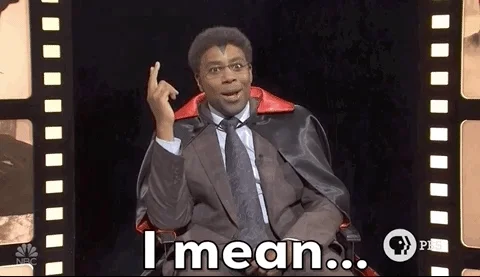While you may have identified with the sentiment, the fact of the matter remains; the song is still about old dudes pervin’ out over an underaged girl in a manner that has always been creepy and inappropriate - it’s only now that such problematic behavior is being called out for exactly what it is… even in retrospect.
Okay. How old were you when you posted this?
Because methinks you’re missing the point.
No great surprise that those men took the credit for Gilberto’s contributions and abilities
To me the song tells of a young woman who is so inured by daily lechery that she misses the opportunity of true love (with the he of the song). I don’t have Portuguese, so this impression is only from the English portions.
(post deleted by author)
Doesn’t mean it’s still not gross as fuck. ![]() Grown men leering at teenaged girls is gross whatever the legal context, I’d argue.
Grown men leering at teenaged girls is gross whatever the legal context, I’d argue.
Also, the lyricist (Vinicius d Moraes) was in his 50s when he wrote the song.
Because all laws are always just and good… /s
Because it IS, Blanche; It is!
IT IS GROSS AS FUCK.
No matter where it happens.
Dudes, can ya hear us now?!?
I am not even sure why this needed to be mentioned. Did I somehow imply that the ONLY reason this was gross was because of the law? WTF?
I wonder why most of the comments on a thread about an example of women being at a disadvantage in the music industries are about whether and when it’s ok to wanna fuck teens though… NVM no I don’t wonder.

Because we can’t ever have conversations about women that does not get derailed by pointless debates about shit that would need little discussion, especially when there are facts to back this up. The very first post was just dismissing the facts about the writing of the song, pointless nitpicking, instead of trying to figure out why women are often screwed over by the recording industry. And of course, to some extent, these two topics ARE tied together, because an industry that produces content that regularly treats women as objects of lust rather than human beings also treats women who work in the industry far worse then it treats men.
It frustrates me because it’s shifting a concrete and objective problem into a subjective one.
What is the song really saying is a question of poetry. I can perceive it as a woman watching two young people never quite connecting at the beach after all if I want to. So what better tool to make the reality that women’s creative work often gets marginalized, credited to men in her life, and degraded seem unimportant and subjective than to equate those things?
Pffffffft… Pffffft, I say
This topic was automatically closed after 5 days. New replies are no longer allowed.
